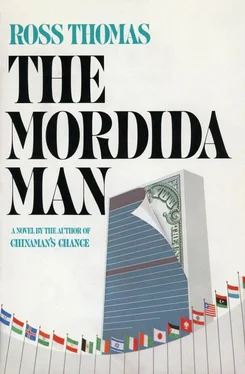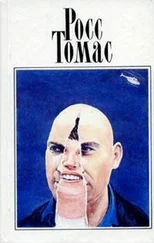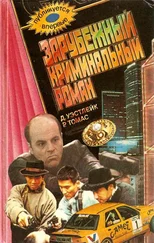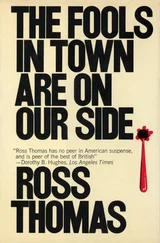“How much did it all cost?” Timble asked, taking out a small spiral notebook and a ball-point pen. When it came to money, Timble’s air of mild bemusement vanished. His large brown eyes narrowed, even glittered, and his face, at twenty-nine still almost as round and unformed as a child’s, seemed to lengthen itself into a sterner, more adult shape.
Keeling was ready with the figures. “It took thirty-four thousand just to get the lead on them.”
Timble jotted down the figure.
“Then I jewed Zlatev down to nineteen thousand for the umbrella.”
“The Bulgarian,” Timble said and made another quick note.
Keeling nodded. “The de la Cova woman was a bargain, twenty thousand.”
Timble’s small mouth pursed itself into appreciation at the figure as he wrote it down.
“That little fag who used to be with MI 6 — he wouldn’t budge for less than forty thousand.”
Timble frowned, but said nothing, and made another note.
“That East End crowd I told you about came through with the taxi and driver for five thousand, and then I had to spread another twenty thousand around out at Heathrow.”
“In all, $138,000,” Timble said. “Not bad, although I think you could have sliced just a teeny bit more off the Bulgarian’s price for his umbrella.”
“I could have rented it,” Keeling said, not bothering to put much sarcasm into his tone, because Timble never noticed it anyway.
For a moment Timble’s face brightened. But it was only for a moment. “No,” he said, “I don’t suppose that would have done at all.”
“No.”
“Still, $138,000 isn’t bad. I think the ransom will be ten million. Ten million each, of course, or have I already mentioned that?”
Keeling wiped one of his large hands hard across the bottom of his face. “Leland?”
“Yes.”
“Lemme ask you something again?”
“Of course.”
“And this time you’ll give me a straight answer?”
“Certainly.”
“Who are we gonna ransom Felix down there feeding the sharks twice to?”
For a moment, Timble’s expression changed. The emotion that flitted across it was one of either rage or despair. Like a child, Timble’s face had a limited range of expressions which came and went so quickly it was often difficult to determine his feelings.
“You didn’t forget my contingency instructions, did you, Franklin? I would be extremely disappointed if you did. Most operations fail because of a lack of contingency planning. An ability to anticipate the unexpected as well as the unforeseen—”
“Leland,” Keeling interrupted.
“Yes.”
“I didn’t forget.”
A look of pure joy came and went from Timble’s face in less than a second. It was almost subliminal. If I had blinked, Keeling thought, I would have missed it.
“I knew you wouldn’t,” Timble said and smiled happily with his lips closed, showing no teeth. When he smiled like that, he reminded Keeling of those dumb faces that some people draw at the bottom of their letters.
“Leland,” Keeling said.
“Yes.”
“Lemme ask you again. Who are we going to ransom Felix down there in the ocean twice to?”
“Didn’t I just say?”
“No.”
“Oh. Well, first to Israel and then to Libya. Or perhaps vice versa.”
The day after his meeting with Paul Grimes, Chubb Dunjee on a very wet Thursday morning flew into Heathrow from Lisbon aboard an Iberia Airlines DC-8. He went through customs and immigration and then headed for the Pan Am counter, where he used his nearly expired American Express card to charge a first-class one-way ticket to Rome on a flight leaving in two hours.
He had decided to put to a test the easy-money proposition Paul Grimes had made him in Sintra. Over the years, Dunjee had abandoned nearly all faith in easy money.
At a pay phone he dialed the London number that Grimes had urged him to memorize. The phone rang its double rings twice before a woman’s voice answered with a carefully noncommittal “Yes.”
“This is Dunjee.”
“One moment.”
There were some clicks and whirrings that Dunjee didn’t particularly care for, but then Grimes came on the phone with “Where are you?”
“Heathrow. I’ll be in the Pan Am VIP lounge for the next hour and twenty minutes. If half of what we talked about in Sintra isn’t here by then, I’ll be elsewhere by evening.”
“Well, shit, Chubb.”
“It’s up to you.”
Grimes sighed. “It’ll be there,” he said and hung up.
Dunjee effortlessly talked his way into the Pan Am VIP lounge, which turned out to be a rather grubby place that offered some worn couches and chairs, a TV set, and free help-yourself booze from a rotating circular rack of upside-down bottles. There were also some bowls of peanuts, potato chips, Ritz crackers, and a large mound of glowing orange cheese spread that somehow looked radioactive and no one had touched. Dunjee glanced around, but could spot no one who looked very important. Not even slightly important. He mixed himself a free whisky and water and settled down to wait.
Sixty-two minutes later the messenger from Grimes arrived. The messenger was a tall woman, either approaching thirty or just past it. Even in the rain she had worn large round dark glasses, but removed them as soon as she entered the lounge. Dunjee was mildly relieved to see her put them away in her purse instead of shoving them up on top of her short blond hair that had been turned dark and damp by the rain.
The woman paused to glance around the lounge. She quickly rejected several other waiting male passengers, settled on Dunjee, studied him briefly, and then made her way toward him. Dunjee liked the way she walked.
When the woman reached Dunjee, she stopped and for several moments stood staring at him calmly, almost quizzically. “He said you were a bit cockeyed,” she said. “It’s rather nice. I’m Delft Csider. That’s spelled with a Cs.”
“Delft?”
“My eyes.”
Dunjee saw that they were indeed blue, perhaps even delft blue. They went with her pale smooth skin and her high-cheek-boned face that seemed to have more than just a touch of Slav in it. For some reason, he found himself wondering how many languages she spoke.
“You were the one on the phone, right?” Dunjee said as he rose.
“Right.”
He indicated the large fat manila envelope that her left hand clutched against her damp oyster-white raincoat. There was no ring on the hand. “That for me?” he said.
She nodded and with her right hand dug deeply into the leather purse that hung from her shoulder. She took out a folded sheet of paper.
“You’ll have to sign for it.”
“Sign?”
“You know — your name.”
Dunjee smiled. “You bet.”
He took a ball-point pen from his pocket and without even reading what was on the sheet of paper wrote something on it. Then he handed it back to her.
“Felix Krull,” she read. “That’s rather funny.”
“Not as funny as asking me to sign for it.”
She shrugged and handed him the fat manila envelope. “He said I should try.”
Dunjee tapped the envelope. “Would you like a drink while I check what’s inside?”
“I would, rather.”
He nodded toward the free-drink dispenser. “Help yourself.”
As Dunjee turned to leave, her hand touched him lightly on the sleeve. “What’ll you do if it’s not all there?”
“It’ll be there.”
“Then why check it?”
“Because if I don’t now, I may wish that I had later, which would be too late.”
“That’s a complicated attitude.”
“It’s a complicated world.”
Dunjee left, found a men’s room, and inside a stall opened the manila envelope. It contained fifty thousand dollars in rubber-band-bound packets of fifty- and hundred-dollar bills. There was also a note typed on a small square of flimsy paper. The note said, “I’ll call you around noon.” It was unsigned.
Читать дальше










